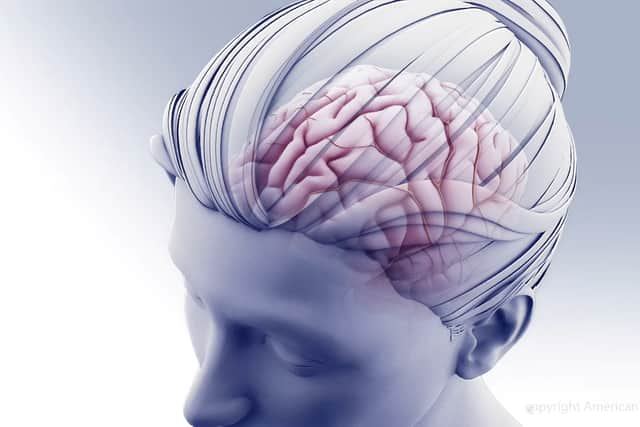Alzheimer’s disease: New vaccine ‘could reduce or prevent’ impact of illness and ‘eliminate toxic cells’
and live on Freeview channel 276
Scientists believe a new vaccine could reduce or even prevent the devastating impact of Alzheimer’s disease, according to new research. The jab could offer fresh hope in treating soaring cases of dementia, which is believed to affect more than 800,000 people in the UK.
The jab, which targets a protein involved in the most common cause of dementia, helped eliminate toxic cells in mice with the condition. Scientists say the mice had fewer amyloid plaques and less inflammation in their brain tissue after the SAGP vaccination - and they also showed improvement in behaviour and awareness.
Advertisement
Hide AdAdvertisement
Hide AdThe new vaccine has been developed by researchers at Juntendo University Graduate School of Medicine in Japan. But it has yet to be tested in humans.
Study lead author Dr Chieh-Lun Hsiao said: “Alzheimer’s disease now accounts for 50 per cent to 70 per cent of dementia patients worldwide.
“Our study’s novel vaccine test in mice points to a potential way to prevent or modify the disease. The future challenge will be to achieve similar results in humans.”
Dr Hsiao believes the vaccine could be a ‘big step forward’ toward stalling the disease’s progression and in the best case, even prevent the disease from developing entirely.
Advertisement
Hide AdAdvertisement
Hide AdThe researchers created an Alzheimer’s disease mouse model that mimics a human brain and simulates amyloid-beta-induced Alzheimer’s disease pathology. Usually, people in the late stage of Alzheimer’s lack anxiety, which means they are not aware of the things around them.


Dr Hsiao said the mice who received the vaccine had anxiety, which means that they were more cautious and more aware of things around them – a sign the researchers say could indicate a lessening of the disease.
Alongside this, several inflammatory biomarkers of Alzheimer’s disease were reduced while a behaviour test on the mice at six months old also revealed that those that received the SAGP vaccine responded “significantly better” to their environment than those who received a placebo vaccine.
The SAGP-vaccinated mice tended to behave like normal healthy mice and exhibited more awareness of their surroundings. The SAGP protein was shown to be located near specialised brain cells called microglia, which play a role in the immune defence of the central nervous system.
Advertisement
Hide AdAdvertisement
Hide AdIn Alzheimer’s disease, an accumulation of brain proteins called amyloid beta peptides clump together forming plaques that collect between neurons and disrupt cell function.
Dr Hsiao said: “Earlier studies using different vaccines to treat Alzheimer’s disease in mouse models have been successful in reducing amyloid plaque deposits and inflammatory factors, however, what makes our study different is that our SAGP vaccine also altered the behaviour of these mice for the better.”
The research team say that previous studies suggest that the SAGP protein is “highly elevated” in microglia, which means that microglia are very important cells to target in Alzheimer’s disease.
Dr Hsiao added: “By removing microglia that are in the activation state, the inflammation in the brain may also be controlled.”
The findings of the preliminary research were presented at the American Heart Association’s Basic Cardiovascular Sciences Scientific Sessions in Boston, Massachusetts
Comment Guidelines
National World encourages reader discussion on our stories. User feedback, insights and back-and-forth exchanges add a rich layer of context to reporting. Please review our Community Guidelines before commenting.
